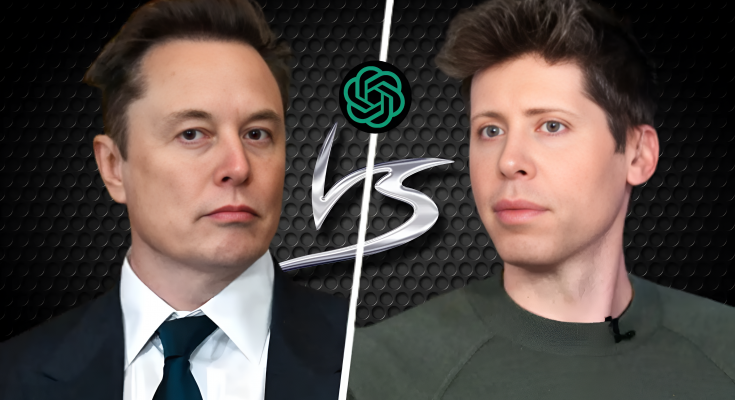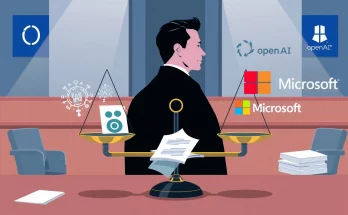The landscape of artificial intelligence (AI) is undergoing a seismic shift as the competition for innovation and leadership heats up. At the forefront of this struggle is OpenAI, the creator of ChatGPT, amid a major takeover bid from a consortium of investors led by none other than Elon Musk. This complex situation revolves around not just financial figures but the core mission and future direction of AI technology. In this article, we delve into the intricacies of Musk’s bid, the implications for OpenAI, and what it means for the broader tech ecosystem.
The Background: Who Owns OpenAI?
OpenAI operates under a unique structure that sets it apart from traditional tech giants like Meta or Microsoft. It combines both non-profit and for-profit entities, which has led to questions about its ownership and governance:
- Sam Altman, OpenAI’s CEO, co-founded the organization with Musk, though their paths diverged after differing opinions on management.
- The organization’s mission revolves around creating artificial general intelligence (AGI) that benefits all of humanity.
- Unlike publicly traded companies, OpenAI has a complicated ownership structure, making it less transparent when it comes to decision-making.
The $97.4 Billion Bid
Recently, Musk’s attorney, Marc Toberoff, confirmed the submission of a staggering $97.4 billion bid for OpenAI’s assets to its board. The move has taken the tech world by storm, raising eyebrows and sparking conversations on several fronts:
- The offer is significantly lower than OpenAI’s last reported valuation of $157 billion, but rumors suggest the organization could be valued at up to $300 billion in the next funding round.
- Musk aims to return OpenAI to its non-profit roots, promoting the idea of developing AI for human benefit rather than profit.
- Questions linger about Musk’s true intentions, particularly given that he also leads a competing venture, xAI.
Altman’s Response
Sam Altman was quick to respond to the takeover bid, addressing it in a lighthearted manner on Musk’s social media platform, X, subtly promoting the idea of acquiring Twitter instead. Altman has positioned himself as a stalwart defender of OpenAI’s mission, insisting:
- Musk is a direct competitor who hasn’t succeeded in the marketplace and is now attempting to assert influence over OpenAI.
- The future direction of OpenAI isn’t solely in Altman’s hands, as the board has considerable sway over the organization’s trajectory.
Why the Bid Matters
The dynamics of Musk’s bid go deeper than financial implications and involve pivotal themes surrounding the governance of AI technology. The impact of such a takeover extends into several critical aspects:
- AI Ethical Governance: The push for ethical AI development is crucial. Musk’s call to return to OpenAI’s non-profit roots implies a strong ethical stance in AI governance.
- Power and Control of AI: As AI continues to grow exponentially, who holds the reins becomes increasingly important. The battle for AI leadership is not just about technology but about power dynamics in the tech industry.
- Funding and Innovation: Altman’s desire to convert OpenAI into a fully for-profit entity aims to attract significant investment into AI research. The competition for funding will drive innovations faster.
The Tech Ecosystem’s Response
Investors and industry insiders are sharing mixed feelings about Musk’s move. Notable tech investor Christie Pitts expressed skepticism, stating:
- “It’s fair to be suspicious considering Musk has a competing firm and his motives might not purely align with OpenAI’s mission.”
- The potential for a hostile takeover raises concerns about the future direction of OpenAI’s groundbreaking technology.
Future-Proofing AI: Beyond the Bid
Musk’s aspirations for OpenAI coincide with the emergence of large-scale investment initiatives aimed at AI infrastructure. The recent announcement of the Stargate Project — a collaboration involving Oracle and various investment firms — focuses on a monumental $500 billion venture to build AI capabilities within the United States. This raises important questions about the geography of AI development:
- The Stargate Project has been touted as the “largest AI infrastructure project by far in history,” highlighting the competitive race among tech giants.
- Despite Musk’s criticisms regarding financial viability, the project represents a substantial investment in AI capable of reshaping the technological landscape.
The Road Ahead: The Stakes for OpenAI
As OpenAI stands at this crucial junction, several factors will determine its future:
- The Board’s Decision: The OpenAI board plays a crucial role in determining if they will consider Musk’s bid favorably or keep the organization on its current path.
- Market Competition: The battle between Musk’s xAI and OpenAI, as both companies strive for supremacy in AI technology, will shape innovations and ethical guidelines in the sector.
- Public and Investor Sentiment: How investors and the public perceive Musk’s bid will heavily influence OpenAI’s next steps and overall strategy.
Musk’s ambitious bid for OpenAI not only captures headlines but also thrusts the organization into a pivotal moment in the world of technology. The outcome of this potential acquisition will not only redefine the mission and direction of OpenAI but also could set a precedent for the governance and control of AI technology as a whole. As the pieces move on this chessboard, the global community watches closely, eager to see who will emerge as the leader in the new frontier of artificial intelligence.
>>> Want to start AI Agency? Join Highlevel free Bootcamp



